The keto egg fast is one of the most popular strategies for breaking through weight loss plateaus and accelerating fat loss. Essentially, it is a short-term keto diet plan centered around eggs, cheese, and butter, with very few exceptions.
Though this approach would make old-school cardiologists gasp, there are plenty of low-carb and keto dieters that implemented the egg fast and achieved incredible results. However, this doesn’t answer the most important question: Will the keto egg fast be safe, healthy, and effective for you?
In this guide, we will help you find the answer and show you how to implement a keto egg fast meal plan successfully by covering the following topics:
- What is an egg fast?
- Keto egg fast rules
- Comprehensive food list
- Does it really work? The science behind the results
- The benefits
- The potential risks and dangers of egg fasting
- How to know if it will work for you
- Egg fast keto recipes
- Sample 3-day meal plan
- How to transition from your fast
- Common egg fasting FAQs
- Key takeaways
What is an Egg Fast? Its Origin and Potential Results
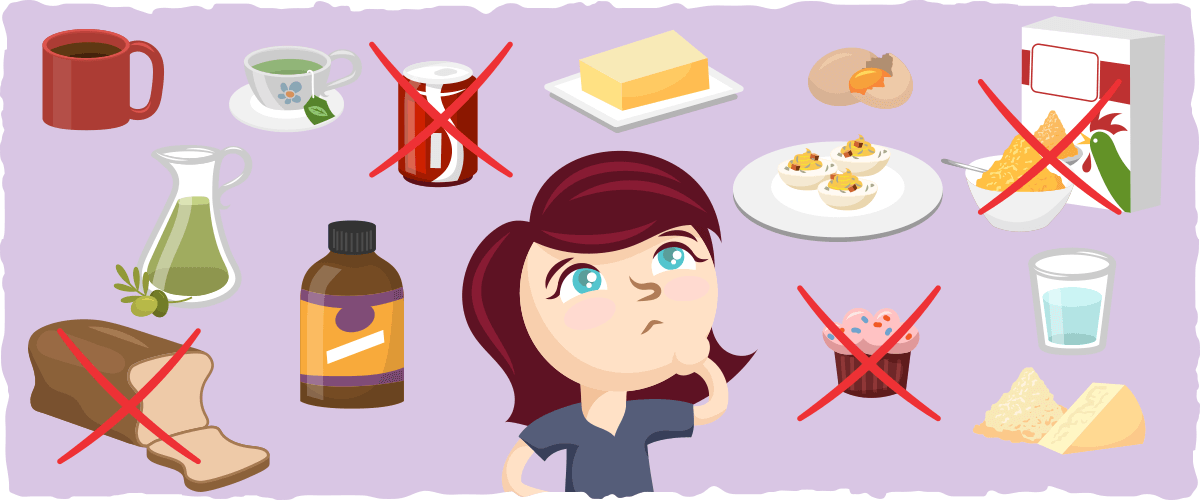
The egg fast is a variation of the fat fasting technique that prioritizes one of the best foods for keto: eggs.
After learning that eggs have an ideal mix of amino acids, choline, and other nutrients that may boost fat loss, Jimmy Moore of Livin La Vida Low Carb devised a diet plan based around eggs and ketosis.
Each day, he would have at least six eggs with grass-fed butter and raw cheese while following a specific meal timing schedule. With this simple diet shift, he lost ~25 pounds (~11.4 kg) in 30 days.
Keto Egg Fasting Diet Rules
The weight loss results with this approach can be awe-inspiring. Fortunately, people have documented the details so we can better understand what went into this egg-based meal plan.
Here is a comprehensive list of the keto egg fast rules that are typically followed:
- Eat a whole egg within 30 minutes of waking up.
- Eat at least six whole eggs per day.
- Consume one tablespoon (15 grams) of MCT oil (this is our favorite brand – use coupon RULEDME for 15% off).
- Eat one tablespoon of butter (or oil) and up to 1 ounce (28 grams) of full-fat cheese per egg eaten.
- Eat an egg-based meal every three to five hours, even if you aren’t hungry.
- Stop eating three hours before bedtime.
- Opt for the highest quality food when possible. Local pasture-raised eggs and 100% grass-fed, pasture-raised cheese and butter are best.
- Drink plenty of water.
- Zero-carb drinks like coffee, tea, and diet drinks are allowed. For best results, avoid diet drinks and zero carb sweeteners.
- All other calorie-containing foods and drinks are off-limits.
A typical egg fast lasts between three to five days, as this will be enough to overcome a weight loss plateau and promote ketosis.
It is not recommended to follow this approach for longer than five days unless under medical supervision. Doing so will increase your risk of nutritional deficiencies and digestive issues.
Keto Egg Fast Food List
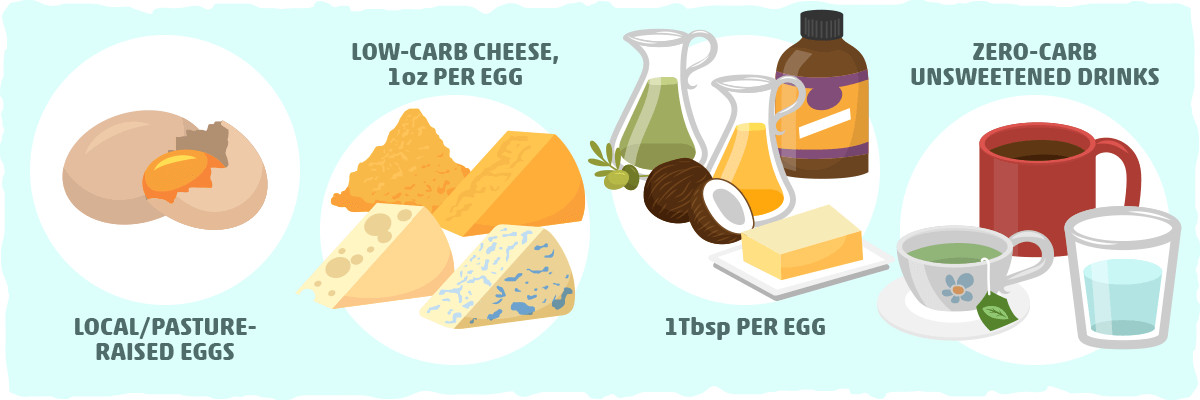
For best results, your egg fast should only consist of the following foods and drinks:
- Eggs — Opt for local, pasture-raised eggs when possible
- Full-fat cheese — Stick to cheeses with less than 1 g of net carbs per ounce. This includes cheddar, parmesan, swiss, feta, mozzarella, brie, Monterrey jack, cream cheese, mascarpone, and blue cheese. Only eat one ounce per egg.
- Grass-fed butter — Eat one tablespoon of butter (or oil) per egg.
- High-quality oil — Extra virgin olive oil, MCT oil, coconut oil, or any other healthy oil for keto.
- Zero-carb, unsweetened drinks — Water, coffee, and tea.
Make sure you follow the rules mentioned in the previous section for optimal results.
How Does It Work? The Science and Results Behind the Keto Egg Fast
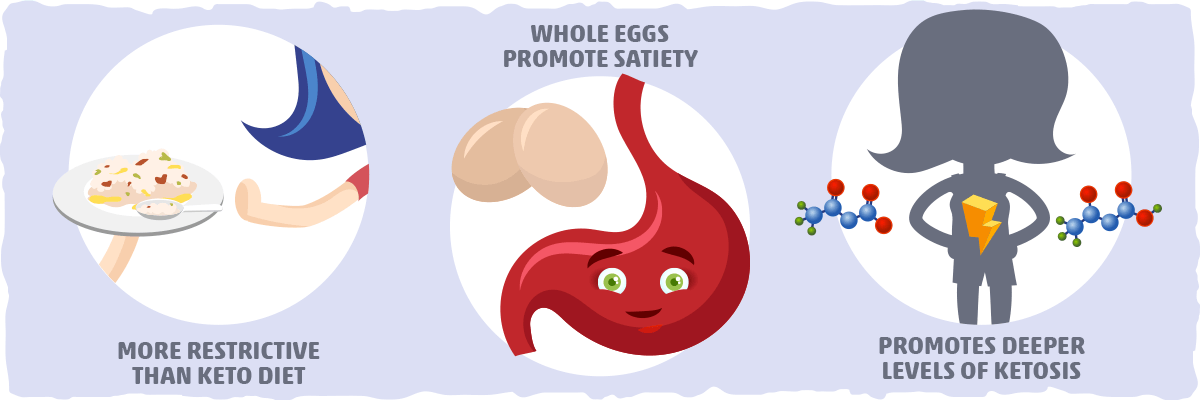
Article after article claims miraculous results from using this unique approach. Anecdotal reports make it seem as if stubborn fat falls off, with weight loss rates of 1 to 2 pounds per day.
Since not much research has been done on the egg fast, there are many promising (and not so promising) hypotheses regarding how it works.
One most popular explanation — i.e., the one that sparked Jimmy Moore’s egg fast epiphany — is that whole eggs contain high amounts of choline and amino acids that promote fat burning. This is what led Jimmy Moore to try his first egg fast experiment.
Choline, in particular, has been shown to play a crucial role in metabolizing fat in the liver. In fact, recent research indicates that choline is essential for optimal liver function and preventing non-alcoholic fatty liver disease. (Studies on low-carb and keto diets have been found to help with non-alcoholic fatty liver disease as well.)
That being said, it is unlikely that eating more eggs would contribute to a significant increase in fat loss for this reason. Plus, we must also consider the fact that the keto diet — particularly one that includes meat, fish, low-carb vegetables, nuts, and seeds — will provide us with the same array of amino acids and nutrients that are found in whole eggs.
This leaves us with three science-based mechanisms that better explain why the keto egg fast can break weight loss plateaus for low-carb and keto dieters:
- The keto egg fast is more restrictive than a typical keto diet. This leads us to eat less food than before, which stimulates the body to burn more stored fat.
- Whole eggs promote satiety. This naturally makes us eat less food at subsequent meals.
- The keto egg fast promotes deeper levels of ketosis. This will help curb cravings and suppress appetite even further.
Simply put, the keto egg fast helps us lose weight by ramping up the same mechanisms that promote fat loss on a standard keto diet. To learn more about the science behind how this works, we recommend reading through our in-depth guide to fat loss.
The Potential Benefits of the Keto Egg Fast
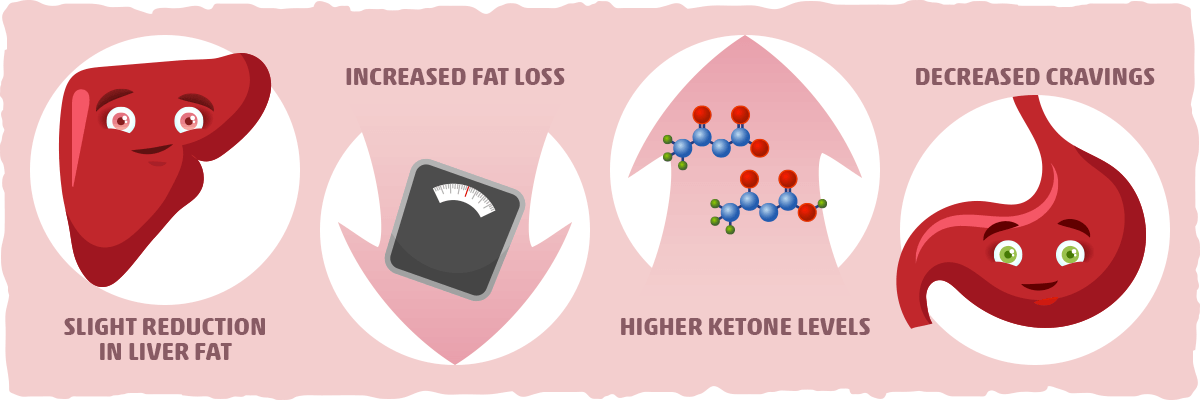
Given the fact this dietary approach requires you to restrict carbs and promote ketosis, you will experience all the same benefits as the keto diet. This includes increased fat loss, improved brain function, decreased inflammation, sustained energy levels, and reduced appetite, among others.
If you are following an egg fast after you’ve been on a keto or low-carb diet, then you may experience the following benefits that extend beyond your current meal plan:
- A slight reduction in liver fat
- Increased fat loss
- Higher ketone levels
- Decreased cravings
Keep in mind, however, that this short-term plateau busting tool is not for everyone. Some individuals may worsen their health with this approach.
Risks, Side Effects, and Safety Concerns
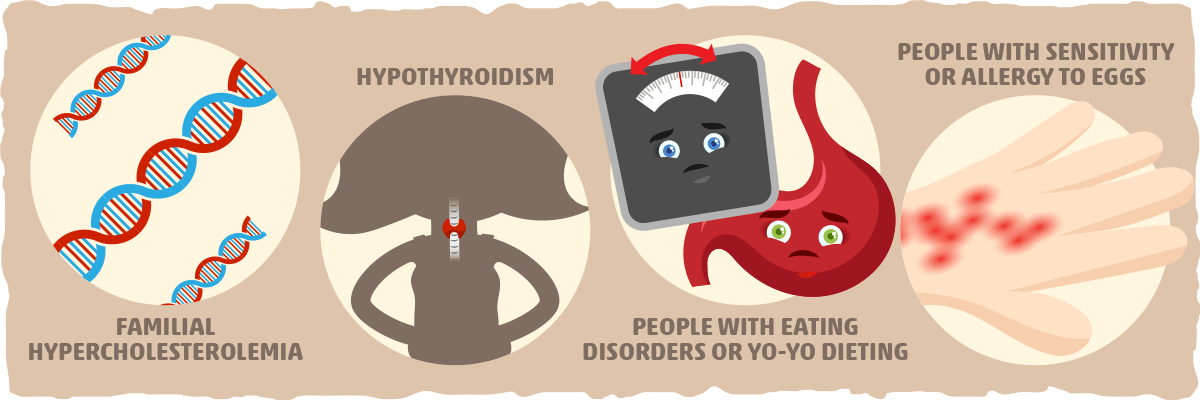
Since the keto egg fast is essentially a restrictive keto diet, both come with similar risks and side effects that depend on the individual.
Put in another way; if following the keto diet for several months was not healthy and effective for you, then the egg fast will likely come with the same struggles.
In general, a keto egg fast will not be suitable for those with the following conditions:
- Hypothyroidism that isn’t improved by keto or low-carb dieting.
- Anyone who has struggled with eating disorders or yo-yo dieting in the past.
- Anyone with egg allergies or a sensitivity to eggs.
The egg fast also is not feasible for vegans and those who avoid eggs for religious reasons.
If these considerations don’t apply to you, then the only side effects you may experience are keto-flu symptoms, such as fatigue and mental fogginess. Fortunately, many of these symptoms are remedied by increasing your intake of water and electrolytes.
Even those who are already accustomed to the keto diet can still experience a mild version of the keto flu, due to increased food restriction. For tips on how to remedy these symptoms (or prevent them from happening), following the suggestions in our keto flu article.
Should You Try the Keto Egg Fast? Will it Work for You?
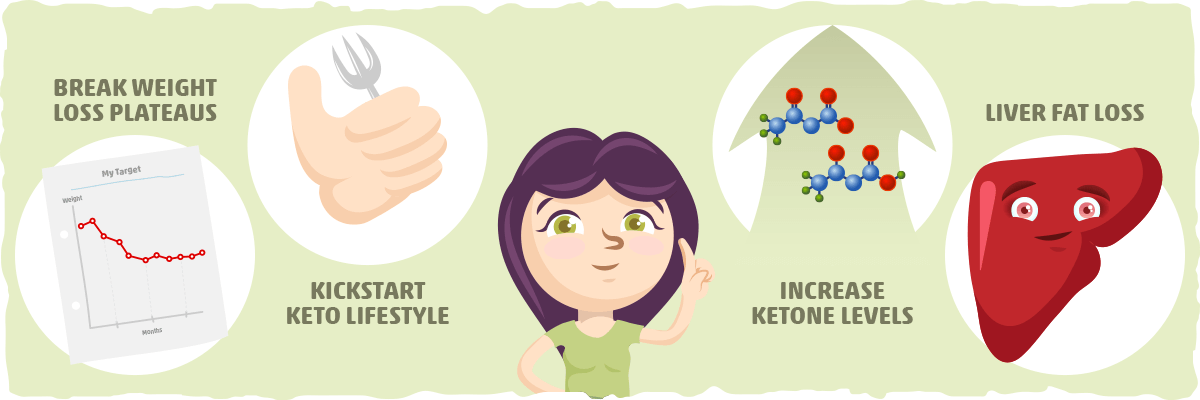
Now that you know the rules, potential benefits, results, and worst-case scenarios, let’s figure out if it will work for you.
In general, the keto egg fast will typically work best for:
- Those who have reached a weight loss plateau after following a keto diet.
- Anyone who wants to kickstart their keto lifestyle with a simple meal plan.
- Anyone looking to increase their ketone levels significantly.
- Anyone looking to promote liver fat loss.
That being said, the only way to truly find out if it’ll work for you is by trying it once. A 3-day trial will be all you need to learn if the keto egg fast will help you boost your fat loss results.
To help you get started, let’s take a look at some keto-friendly recipes and a 3-day meal plan that you can use for your keto egg fast.
Keto Egg Fast Recipes
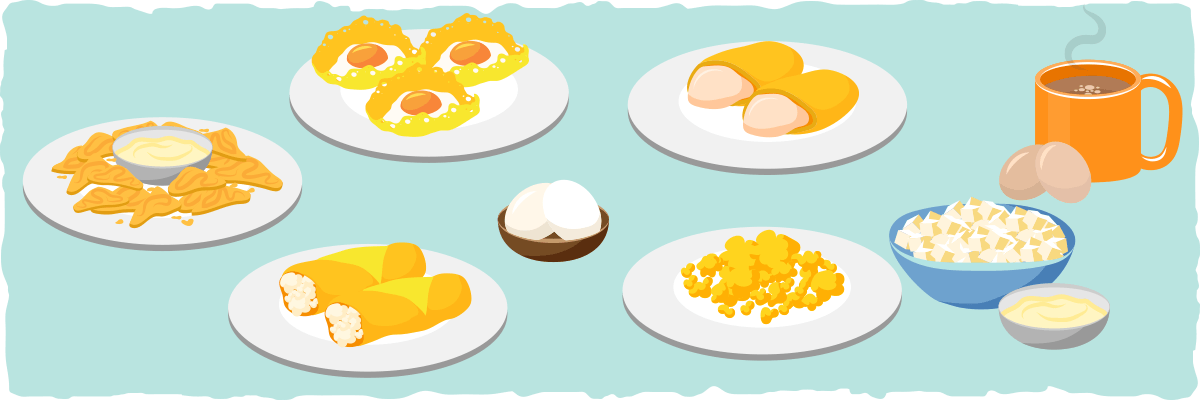
This is my favorite way to sneak in an egg within 30 minutes of waking up. Just add an egg yolk (or two, or three) before blending your creamy, delicious keto coffee. Don’t worry — it won’t taste eggy.
Feel free to cook up the egg whites and eat them with some cheese or save them for the next time you make an omelet or egg wrap.
Simply follow the directions on how to make the wrap, add feta (or your favorite cheeses) as the filling, drizzle with extra virgin olive oil or melted butter, and skip the other ingredients. You’ll find the wrap to be somewhere between an omelet and a crepe, with a unique texture that you won’t experience with other egg fast recipes.
If you’d like to follow the keto egg fast rules strictly, omit the spinach and heavy cream. Keep in mind, however, that heavy cream is very similar to butter, so you can be a bit more lenient with this ingredient.
Remember to consume one tablespoon of butter or oil for every scrambled egg. You can also add in some extra cheese if you’d like, but don’t exceed 1 ounce per egg. If this doesn’t sound appealing try our keto egg bites.
One of the simplest ways to follow the egg fast is by using hard-boiled eggs as the base of your meal. Drizzle with one tablespoon of olive oil or melted butter per egg and add salt to taste.
You can also chop up the hard-boiled eggs to make an egg-fast-friendly egg salad.
Simple Egg Salad
Though most egg salad recipes call for a bunch of ingredients that don’t fit the rules, it is still possible to make it yourself after stripping it down to its essential components: hard-boiled eggs, an egg yolk, and oil.
Surprisingly enough, the oil and egg yolk is all you need to make a satisfying keto mayo. Simply whisk an egg yolk while adding oil one drop at a time to emulsify it into a creamy mayo. (For more detailed instruction, read through the Homemade Keto Mayo section of our guide to mayonnaise.)
Once you’d made the mayo, chop up the hard-boiled eggs and mix the two together. Add salt, pepper, and shredded cheese for flavor if desired.
Cheese Chips with Egg Fast Mayo
You can also use the 2-ingredient mayo from the previous recipe as a dip for cheese chips. Even without using the bacon that these cheese chips call for, the end result will still be satisfying and crispy.
Use the leftover egg white from your mayo to make scrambled eggs or egg wraps later.
If you’d rather have your eggs fried, sunny side up, or over easy, give the cheese basket section of this recipe a try. While your cheese baskets are baking, cook your eggs in butter (while using a ramekin to get a perfectly sized egg).
Once the baskets are done, lay a cooked egg on each basket. To follow the egg fast rules precisely, use roughly a quarter cup of shredded cheese for each basket and one tablespoon of oil or butter for each egg.
These are essentially omelet wraps with melty cheese oozing out. Simply omit the sausage and bacon and use whatever keto cheeses you’d like as the filling.
Since each roll up is made of two eggs, use up to 2 ounces of cheese and two tablespoons of butter or oil per roll up.
3-day Keto Egg Fast Diet Meal Plan
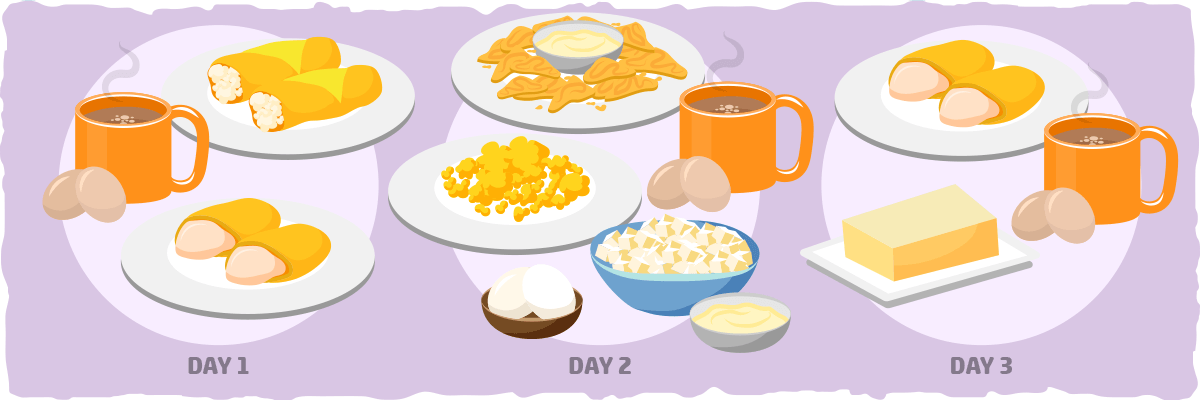
Most egg fasts will consist of 3-4 meals per day, so we designed the following plan around four meals. When personalizing this meal plan, make sure you keep the egg fast rules in mind!
Day 1 — Get Fancy with Feta Wraps
- First meal (within 30 minutes of waking up): Ketoproof coffee* with egg yolk(s) added. Scramble the extra egg whites or save them for your next meal.
- Second meal (3-5 hours later): One Feta Egg Wrap (2.5 eggs)
- Third meal (3-5 hours later): One Feta Egg Wrap (2.5 eggs)
- Fourth meal (3-5 hours later): One Breakfast Roll-up (2 eggs)
Day 2 — Mayo and Hard-boiled Eggs
- First meal (within 30 minutes of waking up): Ketoproof coffee* with one hard boiled egg. Hard-boil at least five more eggs for later in the day.
- Second meal (3-5 hours later): Simple Egg Salad (3-4 hard-boiled eggs)
- Third meal (3-5 hours later): Cheese Chips with Egg Fast Mayo
- Fourth meal (3-5 hours later): Egg and Cheese Omelette or Egg Wraps (use enough eggs to increase your intake to at least six whole eggs, and add any extra egg whites.)
Day 3 — Keeping it Simple, Easy, and Cheesy
- First meal (within 30 minutes of waking up): Ketoproof coffee* with one breakfast rollup (2 eggs)
- Second meal (3-5 hours later): One Breakfast Roll-up (with 2 eggs, 2 oz. cheese, and 2 tbsp of butter)
- Third meal (3-5 hours later): One Breakfast Roll-up (with 2 eggs, 2 oz. cheese, and 2 tbsp of butter)
- Fourth meal (3-5 hours later): One Breakfast Roll-up (with 2 eggs, 2 oz. cheese, and 2 tbsp of butter)
If you are not a coffee or tea drinker (or you’d rather not add an egg yolk), feel free to replace the first meal with one of the other recipes or one egg cooked to your preference.
*Please note: Each cup of ketoproof coffee comes with one tablespoon of butter and one tablespoon of coconut oil. By the end of the day, make sure you balance out your overall oil + butter consumption to 1 tablespoon per whole egg.
How to Transition Off of a Keto Egg Fast
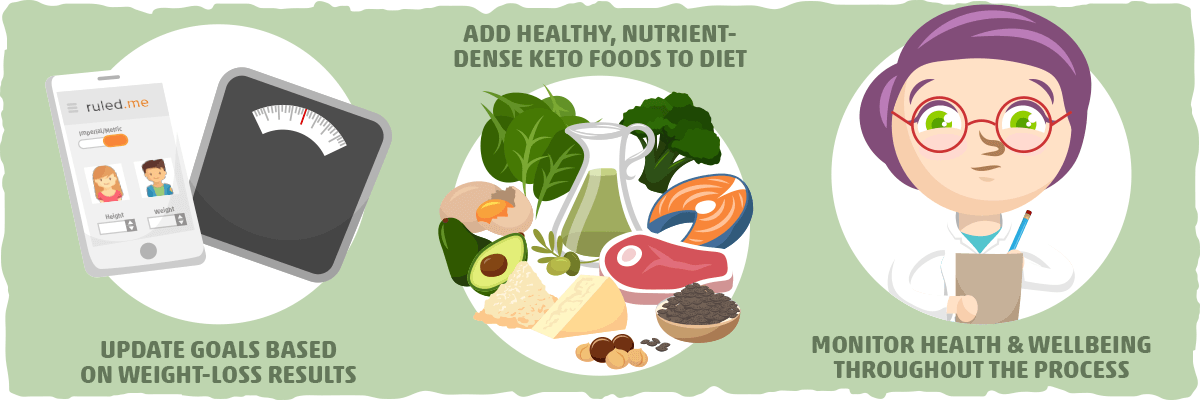
The best way to transition off of your egg fast is by following a keto diet that is healthy and effective for you. The simplest way to do this is by using these three steps as your guide:
- Update your goals based on your results. Your nutrient needs will change depending on how much weight you lose. Use a keto calculator to recalibrate your food intake based on your new weight and body composition goals.
- Add health-promoting, nutrient-dense keto foods into your diet. To meet your new fat and protein intake goals, rely on minimally-processed keto-friendly foods. You can find the healthiest options and recipes in our article on the top 10 foods for the ketogenic diet.
- Monitor your health and wellbeing throughout the process. With any dietary change, it is important to track your mental health, blood test results, and body composition to make sure your lifestyle is healthy and sustainable for you. Follow this link for specific guidelines that’ll help you formulate the ideal dietary approach for you.
Keep in mind, however, that your weight will naturally fluctuate from day to day as you transition off your egg fast. This is why we recommend waiting until you’ve followed your transitional diet for at least 4-6 weeks before you reassess your results and make further changes to your keto lifestyle.
FAQs about Keto Egg Fasting and the Meal Plan
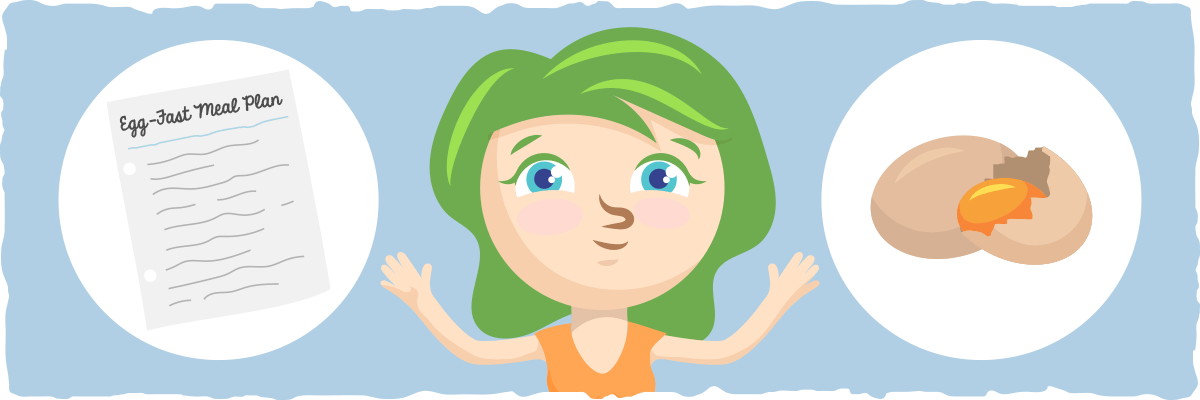
Before we bring this guide to a close, let’s take a look some common questions we’ve yet to address directly:
Should I be in ketosis before egg fasting?
The egg fast can be effective regardless of your current ketone levels. However, if you are not in ketosis before using this approach, you will have an increased risk of experiencing keto flu symptoms.
Can I use this egg fast meal plan to kick start ketosis?
Similar to the fat fasting technique, the egg fast will help you enter ketosis more quickly than a standard keto diet.
I don’t like hard-boiled eggs, can I still do the egg fast?
Yes, prepare your eggs however you’d like or simply follow day 1 and/or 3 of the meal plan for 3-5 days.
Can I eat whatever I want after following the meal plan?
For optimal results, it is best to transition into a healthy, sustainable keto diet. Following a high-carb diet after the egg fast will promote rapid weight gain that can exceed what was lost.
Can I use your meal plan for a 5-day fast instead?
Yes, you can — feel free to repeat your favorite days and/or recipes. Just make sure you are following the egg fast rules.
Can I follow the egg fast for longer than 5-days If I’m feeling good?
Given the restrictive nature of the egg fast, it isn’t sustainable or healthy for long-term dieting. It is best to focus your efforts on developing a healthy and sustainable lifestyle rather than extending the fast.
How often can I implement an egg fast?
For optimal health and wellbeing, it may be best to use this technique sparingly. The egg fast has the potential to provoke nutrient deficiencies and yo-yo dieting cycles that can wear away at physical and mental health over time.
We recommend focusing your efforts on formulating a keto lifestyle that naturally helps you improve your health, wellbeing, and body composition without feeling restricted.
Key Takeaways — The Egg Fast, Maintaining Your Results, and Your Keto Lifestyle
The keto egg fast can promote incredible weight loss results, but the mechanisms behind its benefits aren’t new. In fact, this fat loss tool relies on many of the same factors responsible for keto success.
The only thing that gives it a slight edge over a standard ketogenic diet is the fact that it is more restrictive. By following the egg fast rules, you naturally end up eating less food and promoting deeper levels of ketosis, which will help you break through your weight loss stall.
However, since this approach mostly consists of eggs, butter, and cheese, it should only be implemented for 3-5 days at a time to help accelerate fat loss.
Once you’ve successfully completed your keto egg fast, we recommend refocusing your efforts on formulating a keto lifestyle that is healthy and sustainable for you.
If you’d like to learn more about how to personalize your diet, we’ve included several links that’ll help you get the results you want:
- A Complete Guide to Keto Plateaus — Learn why your weight loss is stalling and what you can do to lose that stubborn fat.
- 5 Simple Keto Diet Hacks for Sustainable Weight Loss — Quick tips to ensure keto success.
- How To Start A Keto Diet — A simple step-by-step plan for beginners.
Sources
- Egg breakfast enhances weight loss. — NCBI
- Short-term effect of eggs on satiety in overweight and obese subjects. — NCBI
- Choline Metabolism Provides Novel Insights into Non-alcoholic Fatty Liver Disease and its Progression — NCBI
- Choline — Oregon State University
- 26: The Perfect Low-Carb Food Is The Incredible, Edible Egg — Livin La Vida Low Carb with Jimmy Moore
- How to Maintain Long-Term Keto Weight Loss Results for Life — me
